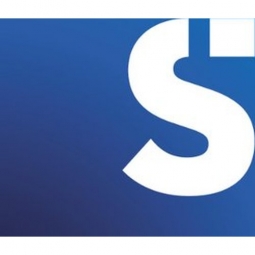Technology Category
- Analytics & Modeling - Machine Learning
- Functional Applications - Transportation Management Systems (TMS)
Applicable Industries
- Consumer Goods
- Transportation
Applicable Functions
- Logistics & Transportation
Use Cases
- Autonomous Transport Systems
- Transportation Simulation
Services
- Data Science Services
About The Customer
Coca-Cola HBC is the third largest strategic bottling partner of The Coca-Cola Company, operating in 28 markets across three continents. The company generates revenues of more than €7 billion annually from over 2 billion unit cases of product. Its geographical reach stretches from the west coast of Ireland to the east coast of Russia, and from the Baltics to Nigeria. Coca-Cola HBC is a leader in consumer packaged goods and is recognized as the world’s most sustainable beverage company according to the Dow Jones Sustainability Index (DJSI). The company transports over 400,000 truckloads to customers each year, making its operation large and complex.
The Challenge
Coca-Cola Hellenic Bottling Company (HBC), a FTSE 100 company, operates in 28 markets across three continents, generating revenues of over €7 billion annually from more than 2 billion unit cases of product. As the third largest strategic bottling partner of The Coca-Cola Company, Coca-Cola HBC’s geographical reach is vast, stretching from the west coast of Ireland to the east coast of Russia, and from the Baltics to Nigeria. However, the scale, diversity of countries, and complexity of Coca-Cola HBC’s operation creates a large administrative effort to coordinate with transport carriers. This complexity made handling exceptions time-consuming and impacted the potential to improve operational efficiency and customer satisfaction. The lack of visibility of deliveries for recipients and customers further complicated the situation, with administrative teams frequently occupied with non-value adding tasks.
The Solution
Coca-Cola HBC implemented Shippeo’s real-time transportation visibility solution to streamline their logistics operations and improve on-time deliveries to their customers. The real-time visibility across Coca-Cola HBC’s transportation network enhances both internal and external logistics efficiency by boosting collaboration with their carriers. Shippeo’s platform uses machine learning to calculate accurate ETAs and other delivery statuses, which are automatically communicated in real-time amongst Coca-Cola HBC’s suppliers and customers. This helps to ensure alignment and cut down on customer inquiries for their admin teams, allowing them to better focus on more value-added activities and on managing exceptions. The deployment of Shippeo’s solution improves service levels while at the same time reduces transportation costs, thanks to a reduction in waiting times, improved flexibility and resources planning. Easy integration between SAP and their existing systems was also an important factor for partnering with Shippeo.
Operational Impact
Quantitative Benefit

Case Study missing?
Start adding your own!
Register with your work email and create a new case study profile for your business.
Related Case Studies.
.png)
Case Study
Improving Vending Machine Profitability with the Internet of Things (IoT)
The vending industry is undergoing a sea change, taking advantage of new technologies to go beyond just delivering snacks to creating a new retail location. Intelligent vending machines can be found in many public locations as well as company facilities, selling different types of goods and services, including even computer accessories, gold bars, tickets, and office supplies. With increasing sophistication, they may also provide time- and location-based data pertaining to sales, inventory, and customer preferences. But at the end of the day, vending machine operators know greater profitability is driven by higher sales and lower operating costs.

Case Study
Airport SCADA Systems Improve Service Levels
Modern airports are one of the busiest environments on Earth and rely on process automation equipment to ensure service operators achieve their KPIs. Increasingly airport SCADA systems are being used to control all aspects of the operation and associated facilities. This is because unplanned system downtime can cost dearly, both in terms of reduced revenues and the associated loss of customer satisfaction due to inevitable travel inconvenience and disruption.

Case Study
IoT-based Fleet Intelligence Innovation
Speed to market is precious for DRVR, a rapidly growing start-up company. With a business model dependent on reliable mobile data, managers were spending their lives trying to negotiate data roaming deals with mobile network operators in different countries. And, even then, service quality was a constant concern.

Case Study
Digitize Railway with Deutsche Bahn
To reduce maintenance costs and delay-causing failures for Deutsche Bahn. They need manual measurements by a position measurement system based on custom-made MEMS sensor clusters, which allow autonomous and continuous monitoring with wireless data transmission and long battery. They were looking for data pre-processing solution in the sensor and machine learning algorithms in the cloud so as to detect critical wear.

Case Study
Cold Chain Transportation and Refrigerated Fleet Management System
1) Create a digital connected transportation solution to retrofit cold chain trailers with real-time tracking and controls. 2) Prevent multi-million dollar losses due to theft or spoilage. 3) Deliver a digital chain-of-custody solution for door to door load monitoring and security. 4) Provide a trusted multi-fleet solution in a single application with granular data and access controls.




